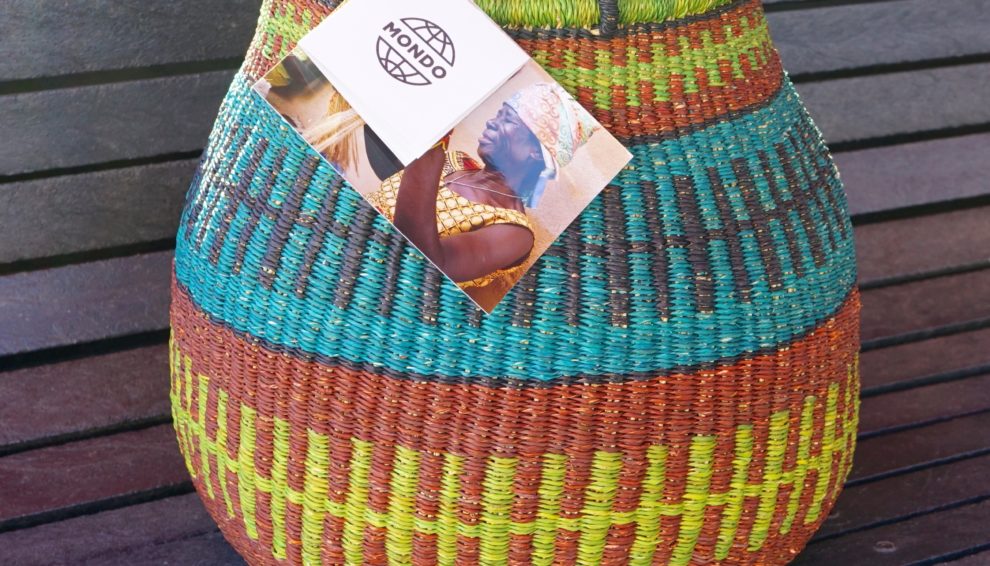
30.10.2018

Diana Tamm and I meet on a sunny day to talk about Mondo Crafts, a social enterprise that she is involved in. This enterprise helps women in the rural communities of Ghana escape poverty, send their children to school and improve the position of women in their society.
More than five years ago, Diana went to work as a volunteer in Ghana. Her task was to develop the project of twin schools, but she also needed to look for ways for the local women to earn their own income. “I met Victoria who worked as a basket weaver and bought ten of her baskets as a sample. A year later, around Christmas time, we opened our first pop up store. The baskets were sold in our first two weeks – we had found our hit product!”
With this social enterprise, Mondo Crafts takes on two issues at once. Diana believes that every person in the world has a right to decent life. “We are giving the women in a developing country the opportunity to hone their skills, lead a business, improve their status in society and earn income for their families.”
Equal parts of the work involve Estonian people. “Our aim is to present a personal experience – Monica made this basket and her picture is attached to it. The very core of her person is the same as us; the people of a small village in Congo also want their children to have a bright future, full bellies and happiness in life,” says Diana.
In seven years, the life in the local community has improved significantly. The association of basket weavers connects more than 35 women and up to 100 women meet up to make shea butter in the appropriate season. Diana describes the story of Victoria Nyaabila, the first basket weaver she met in 2012: “Michael, Victoria’s son, told me that in earlier times, their mother had a very hard time with providing them with three meals a day, especially in spring time when the new harvest was not ready yet. After creating the association, there have been no days when there was nothing to eat in their house. Even with poor harvest, basket weaving provides enough income to buy the food they need.”
The additional income is mainly used for buying products with better quality. All the women still grow their own food, but they need to buy meat and anything that they do not grow themselves. They also invest in their children’s education and buy notebooks and school uniforms or save up for sending them to college.
Diana believes that in addition to providing help, we should also think about changing the underlying reasons for the issues we face: “The fact that many people cannot afford decent life in the modern world is a result of long-lasting global processes. Our economy is structured in such a way that some place has been dug up for raw materials or some place has ridiculously cheap work force, just so that people in the Western world could consume cheap products.”
Webpage: Mondo Shop
Photo: Mondo
Poverty is more than the lack of income and resources to ensure a sustainable livelihood. Its manifestations include hunger and malnutrition, limited access to education and other basic services, social discrimination and exclusion as well as the lack of participation in decision-making.
Economic growth must be inclusive to provide sustainable jobs and promote equality. Social protection systems need to be implemented to help alleviate the suffering of disaster-prone countries and provide support in the face of great economic risks. These systems will help strengthen responses by afflicted populations to unexpected economic losses during disasters and will eventually help to end extreme poverty in the most impoverished areas.
The Sustainable Development Goals are the blueprint to achieve a better and more sustainable future for all.
Read more about SDG 1 – No Poverty
This publication has been produced with the financial support from the Nordic Council of Ministers. The content of this publication is the sole responsibility of the coordinators of this project and do not necessarily reflect the views or policies of the Nordic Council of Ministers.
Kommentaarid